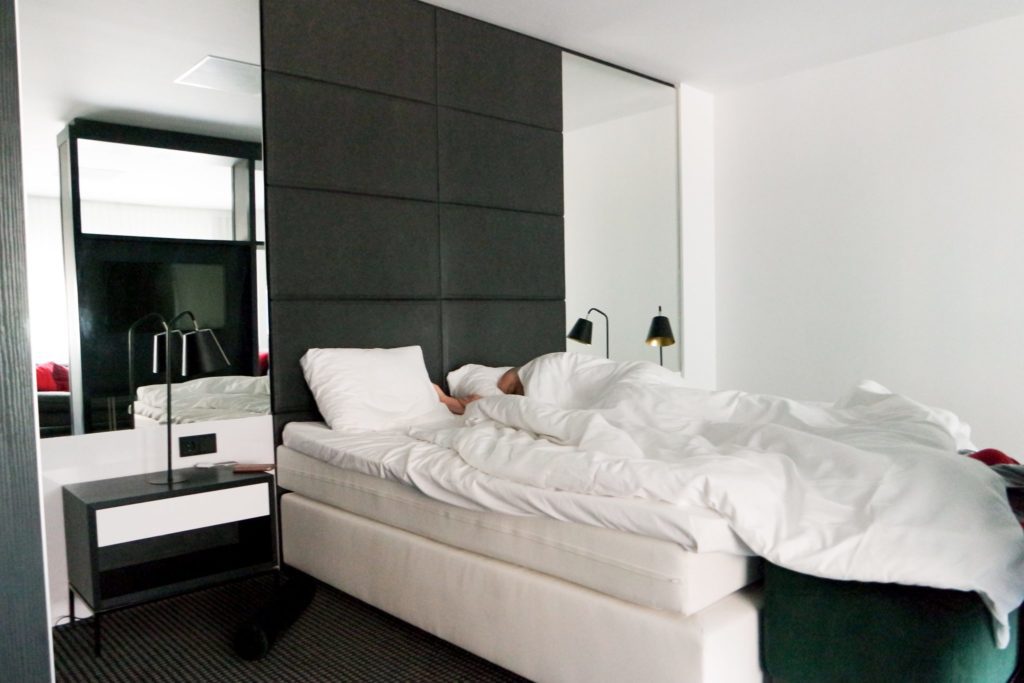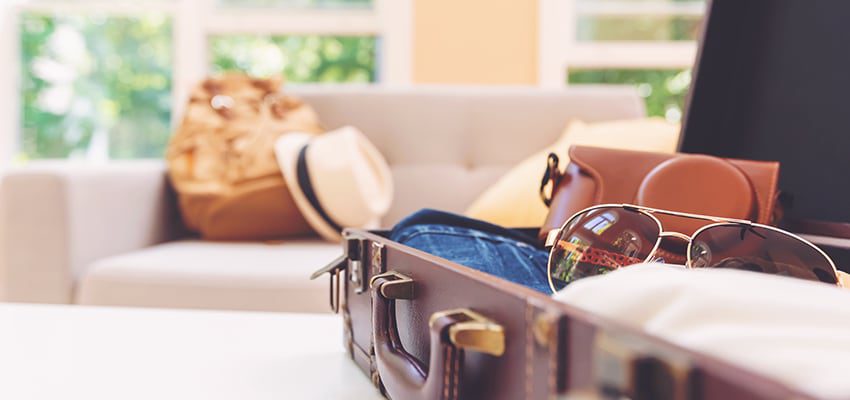Whether you’re a frequent flier or rarely travel, you’ve probably found yourself struggling to get some shut-eye on an airplane. Noise, cramped seating, and bright lights can all make sleeping on a plane difficult.
Losing sleep can leave you feeling irritable and make it harder to function after arriving at your destination. Fortunately, there are some science-backed ways to make sleeping on an airplane a little easier.
Skip the Alcohol
It can be tempting to relax with an alcoholic beverage while you fly, especially if the airline offers a complimentary drink. However, drinking might not help you sleep better in the long run.
While alcohol makes falling asleep easier, it causes you to get less deep sleep. You may even wake up as soon as the drink’s effects wear off. Alcohol can also make jet lag worse and trigger symptoms of travel fatigue.
Flying can make you feel dehydrated, so you’re better off drinking lots of water instead of the complimentary beer or wine.

Try an Eye Mask
Light helps your body to know when to wake up and when to release melatonin, a hormone that triggers sleepiness. Being exposed to bright lights late in the day can keep your body from releasing melatonin, preventing you from falling asleep at the appropriate time.
While you can’t control the lighting in the cabin, wearing an eye mask can help block out unwanted light. Experts suggest reducing light exposure about an hour and a half before you want to go to sleep.
Turn Off Electronics
Laptops, smartphones, and tablets can make a dull flight more bearable, but these devices also emit blue light. The eyes are particularly sensitive to blue light, which inhibits melatonin production and makes it harder to fall asleep.
Researchers are not sure how much blue light exposure is necessary to affect sleep. Some suggest avoiding electronic devices for a few hours before bedtime. To be on the safe side, consider bringing a book or magazine in your carry-on bag instead of a tablet or e-reader.
Block Out Noise
From the roar of the engine at takeoff to overhead announcements, air travel is full of loud, disruptive noises. While some airplanes are noisier than others, where you sit can also determine how loud your trip might be.
Evidence suggests that noise levels are highest at window seats, in the back rows of the cabin, and in locations near the propellers or engines. Regardless of where you sit, noise-canceling headphones may help you get some peace and quiet during the flight.
Optimize Your Space
If the seat next to you is unoccupied, use the extra room to stretch out and get more comfortable. If you’re the only passenger in your row, even better. Maximize your space by storing anything you aren’t planning to use in the overhead compartment and experiment with foot and armrests until you find a comfortable sleeping position.
Many airlines offer amenities like free pillows, slippers, and blankets. Don’t be afraid to take advantage of the items that make sleeping on a plane more comfortable, but don’t feel obligated to keep them if they’re just taking up space. Give any unwanted items back to the flight attendant.
Choose the Right Seat
If possible, try to reserve a window seat so you can sleep with your head resting against the window. Or choose a seat next to the emergency exit, which typically offers more legroom than even first-class seats. Don’t forget that airlines require passengers in the emergency exit rows to meet certain eligibility requirements.
Several websites let you search for in-flight amenities based on the airline and type of plane. Use these sites to determine what you should bring on board with you, such as blankets or pillows, and what you can leave at home to save space on the plane.
Consider Using a Sleep Aid
Before you leave for your trip, talk to your doctor to find out if a prescription or over-the-counter sleep aid might be a good choice for you. While medication alone is rarely used to treat the symptoms of insomnia, it may be a helpful short-term solution for isolated sleep difficulties like falling asleep on an airplane.
It is important to discuss your medication options with a health care professional, even if you plan to take a sleep aid from the drugstore or an herbal supplement. Over-the-counter sleep medications come with potential side effects, and some become less effective when they are used repeatedly over time.
Some people take a melatonin supplement to help them fall asleep or to avoid jet lag. Research suggests that melatonin may prevent or ease symptoms of jet lag in certain situations, and it may help some people fall asleep more easily.
References
Ask the Sleep Doctor
Have questions about sleep? Submit them here! We use your questions to help us decide topics for articles, videos, and newsletters. We try to answer as many questions as possible. You can also send us an email. Please note, we cannot provide specific medical advice, and always recommend you contact your doctor for any medical matters.



